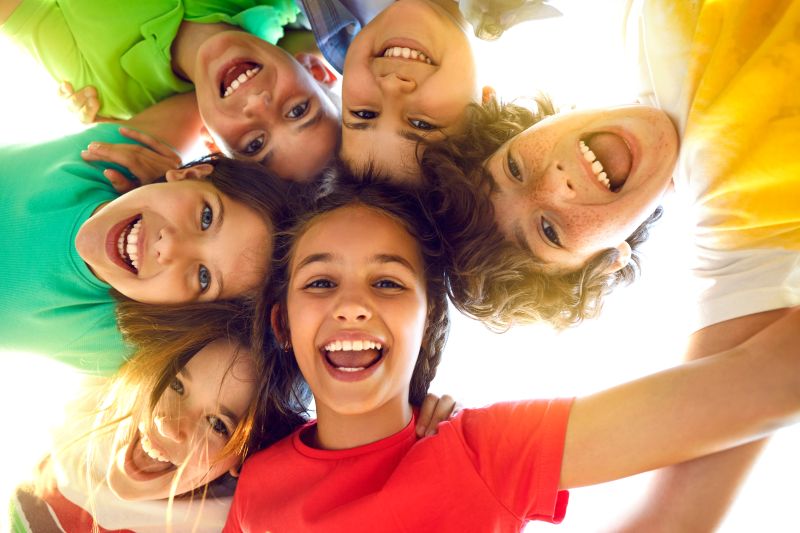
Image by Studio Romantic on Unsplash.
<h2><a href="https://www.nzcer.org.nz/research/publications/hei-whakaarotanga" target="_blank"><i><span data-contrast="none">Hei whakaarotanga</span></i></a><i><span data-contrast="auto">: Engaging with models of health and wellbeing that draw on Mātauranga Māori</span></i><span data-contrast="auto"> is a research paper from NZCER which aims to guide school leaders and other organisations seeking to be better partners under Te Tiriti o Waitangi. </span><span data-ccp-props="{";134233117";:false,";134233118";:false,";201341983";:0,";335551550";:1,";335551620";:1,";335559685";:0,";335559737";:0,";335559738";:0,";335559739";:160,";335559740";:279}"> </span></h2>
<p><span data-contrast="auto">The paper outlines a suggested process for schools and other groups to use when applying health and wellbeing models that draw on mātauranga Māori to their specific contexts. </span><span data-ccp-props="{";134233117";:false,";134233118";:false,";201341983";:0,";335551550";:1,";335551620";:1,";335559685";:0,";335559737";:0,";335559738";:0,";335559739";:160,";335559740";:279}"> </span></p>
<p><a href="https://www.schoolnews.co.nz/latest-print-issue/" target="_blank" rel="noopener"><strong>Read the latest print edition of <em>School News</em> HERE</strong></a></p>
<p><span data-contrast="auto">“What’s really important about these models is that they offer different ways to look at and understand our world. That’s why I find them exciting,” says coauthor Nicola Bright.</span><span data-ccp-props="{";134233117";:false,";134233118";:false,";201341983";:0,";335551550";:1,";335551620";:1,";335559685";:0,";335559737";:0,";335559738";:0,";335559739";:160,";335559740";:279}"> </span></p>
<p><span data-contrast="auto">The aim of the paper is to encourage critical thinking about applying health and wellbeing models and to promote authentic partnership practices between Māori and tangata Tiriti. </span><span data-ccp-props="{";134233117";:false,";134233118";:false,";201341983";:0,";335551550";:1,";335551620";:1,";335559685";:0,";335559737";:0,";335559738";:0,";335559739";:160,";335559740";:279}"> </span></p>
<p><span data-contrast="auto">Coauthors Nicola Bright and Sally Boyd wrote the paper following another study, </span><i><span data-contrast="auto">Manaakitia ngā tamariki kia ora ai | Supporting children’s wellbeing</span></i><span data-contrast="auto">, which explored the practices used by six primary and intermediate schools selected for their high levels of student wellbeing. As background to this study, Bright and Boyd considered how models of wellbeing that draw on mātauranga Māori could be applied to student data. They wanted to explore what wellbeing looked like for ākonga Māori.</span><span data-ccp-props="{";134233117";:false,";134233118";:false,";201341983";:0,";335551550";:1,";335551620";:1,";335559685";:0,";335559737";:0,";335559738";:0,";335559739";:160,";335559740";:279}"> </span></p>
<p><i><span data-contrast="auto">Hei whakaarotanga </span></i><span data-contrast="auto">is organised in sections, the first of which outlines Māori and Western perspectives of health and wellbeing and conceptualises how they may be brought together and interwoven. </span><span data-ccp-props="{";134233117";:false,";134233118";:false,";201341983";:0,";335551550";:1,";335551620";:1,";335559685";:0,";335559737";:0,";335559738";:0,";335559739";:160,";335559740";:279}"> </span></p>
<figure id="attachment_27473" aria-describedby="caption-attachment-27473" style="width: 300px" class="wp-caption alignnone"><img class="size-medium wp-image-27473" src="https://www.schoolnews.co.nz/wp-content/uploads/2023/08/AdobeStock_284805150-300x200.jpeg" alt="wellbeing" width="300" height="200" /><figcaption id="caption-attachment-27473" class="wp-caption-text">Wellbeing is a foundation of student learning. © Good Studio, Adobe Stock</figcaption></figure>
<p><span data-contrast="auto">Next, the paper outlines various models of wellbeing which draw on mātauranga Māori.</span><span data-ccp-props="{";134233117";:false,";134233118";:false,";201341983";:0,";335551550";:1,";335551620";:1,";335559685";:0,";335559737";:0,";335559738";:0,";335559739";:160,";335559740";:279}"> </span></p>
<p><span data-contrast="auto">Finally, the authors unpack how these models can be used as a basis for understanding wellbeing within organisations, including schools. There is a list of reflective questions which may be useful for organisations looking to select a model which aligns with their values, ways of working or purpose. </span><span data-ccp-props="{";134233117";:false,";134233118";:false,";201341983";:0,";335551550";:1,";335551620";:1,";335559685";:0,";335559737";:0,";335559738";:0,";335559739";:160,";335559740";:279}"> </span></p>
<p><span data-contrast="auto">“In writing this paper together, we used a process similar to the one that we suggest in the paper for people to use&#8230; that is to think critically about everything, what we bring into a space and what we need to do to understand and apply the models, and work out a partnership that respects the integrity of the mātauranga Māori that we’re learning from,” says Bright. </span><span data-ccp-props="{";134233117";:false,";134233118";:false,";201341983";:0,";335551550";:1,";335551620";:1,";335559685";:0,";335559737";:0,";335559738";:0,";335559739";:160,";335559740";:279}"> </span></p>
<p><span data-contrast="auto">Boyd notes that although many schools use Mason Durie’s Te Whare Tapa Whā to great effect, the process of how individual schools apply the model to their context varies. Boyd says the report aims to support organisations in this space, but particularly schools, as wellbeing is a recognised foundation of learning. </span><span data-ccp-props="{";134233117";:false,";134233118";:false,";201341983";:0,";335551550";:1,";335551620";:1,";335559685";:0,";335559737";:0,";335559738";:0,";335559739";:160,";335559740";:279}"> </span></p>
<p><span data-contrast="auto">“One of the things that we’re hoping is that the paper will help schools think about whether they need to consolidate approaches or review what they’ve got and enhance it.&#8221;</span></p>
<p><span data-contrast="auto">Using these models, Bright and Boyd believe that all schools can improve wellbeing for all ākonga, especially Māori and Pacific ākonga, who tend to be underserved by the education system. </span><span data-ccp-props="{";134233117";:false,";134233118";:false,";201341983";:0,";335551550";:1,";335551620";:1,";335559685";:0,";335559737";:0,";335559738";:0,";335559739";:160,";335559740";:279}"> </span></p>
<p><span data-contrast="auto">“It’s important to me because the models and theory that underpin whatever you do can determine whose worldviews are prioritised, what questions are asked, and for whose benefit,” says Bright. </span><span data-ccp-props="{";134233117";:false,";134233118";:false,";201341983";:0,";335551550";:1,";335551620";:1,";335559685";:0,";335559737";:0,";335559738";:0,";335559739";:160,";335559740";:279}"> </span></p>
<p><span data-contrast="auto">“The models give schools this opportunity to change their lens and disrupt the norms that might close off possibilities that could really benefit Māori and others.”</span><span data-ccp-props="{";134233117";:false,";134233118";:false,";201341983";:0,";335551550";:1,";335551620";:1,";335559685";:0,";335559737";:0,";335559738";:0,";335559739";:160,";335559740";:279}"> </span></p>

EXCLUSIVE: Teachers used to be paid two to three times more than minimum wage workers,…
After an “overwhelming” vote to reject the latest Government offer, secondary school teachers will begin…
Second-language learning should be compulsory, says a new report from a forum bringing together academics,…
A new entitlement aimed to improve access to learning support coordinators for schools with students…
Educators have raised questions about the Ministry of Education’s new secondary school subjects, set to…
Professional learning and development (PLD) for teachers needs to be higher impact for teachers and…
This website uses cookies.